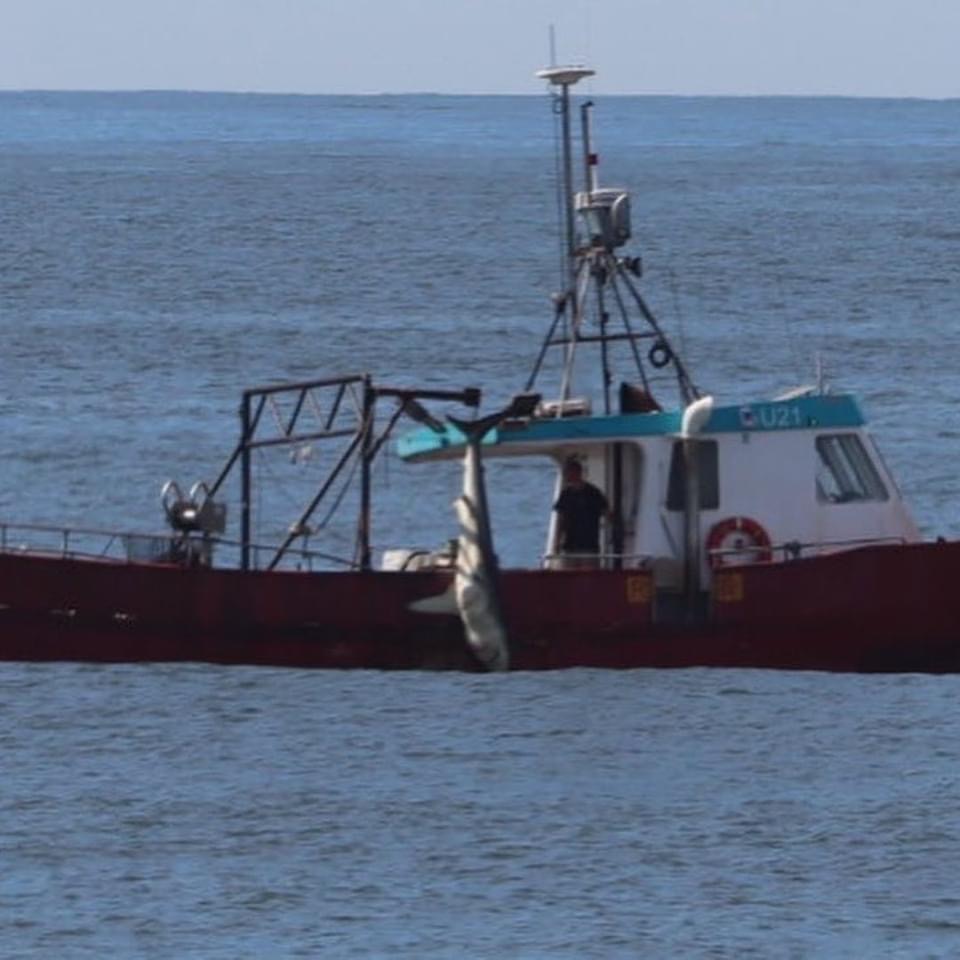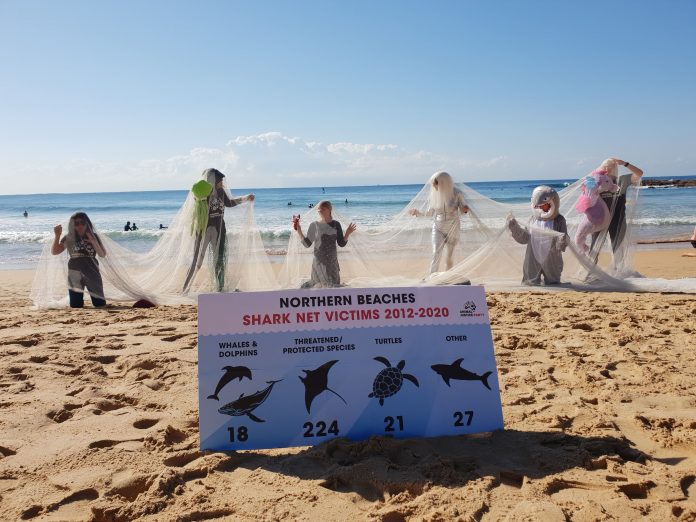Northern Beaches Council has unanimously thrown its support behind the growing movement to do away with an archaic* shark net program which operates along the Beaches coastline during warmer months.
The local government move is in response to a request for feedback from the Department of Industry (DPI Fisheries), which is conducting a review of current shark mitigation practices. We recently shared links to a survey conducted by the University of Wollongong and Charles Sturt University on behalf of the government, which was seeking community views on various shark mitigation strategies.
The survey is now closed and input is sought directly from from coastal local governments before policy decisions are made. It is a State decision.
Residents rally against nets
A number of residents addressed Council’s meeting last night (28 April) in support of shark net removal, including surfing champion Layne Beachley.
A/Mayor Candy Bingham said Council considered both the need to maintain or improve swimmer safety as well as the negative impacts on non-target marine species in reaching their decision.

“The effectiveness of shark nets has been questioned by many, yet their impact on other marine species is devastating,” Cr Bingham said.
“We have an aquatic reserve in Manly where turtles and rays are regularly seen by snorkelers, and up and down the beaches dolphins surf the waves alongside local board riders.
“The research conducted by DPI Fisheries found that 90% of marine species caught in nets were non-target species and that sharks can in fact swim over, under and around the nets anyhow.”
This motion also follows a local protest and data released by the Animal Justice Party last week, stating that at least 290 animals have died in Northern Beaches shark nets over the past nine years, including 18 whales and dolphins, 21 turtles, and 224 threatened or protected species.
GRAPHIC CONTENT WARNING BELOW

Better technology and strategies available to prevent shark attacks
Animal Justice Party Northern Beaches Regional Group Secretary, Susan Sorensen said it was likely many more animals had died after they have been released from the nets.
“Drone and helicopter surveillance, shark listening stations, eco-shark barriers and even personal shark deterrents are all methods that keep swimmers safe without the heavy toll on marine animals. Recent research from the University of Wollongong has also highlighted that increased lifeguard patrols and emergency response is one of the most effective ways to keep people safe in the water.

The research, led by Dr Leah Gibbs and published in the journal People and Nature in 2019, looked at the NSW Shark Meshing (Bather Protection) Program, which was introduced in 1937 and is the world’s longest-running lethal shark hazard management program.
The researchers found that shark nets were not effective for keeping people safe. At the same time, they had a significant negative impact on marine life, both on the targeted species and on other species as well, including threatened and protected species.
We recommend this article in National Geographic for further reading.
* Manly Observer has a well-informed bias against shark nets due to the overwhelming evidence of their environmental destructiveness and largely placebo-only benefit to swimmers and surfers. We acknowledge that this piece adopts a certain point of view. It’s worth noting there is some agreement that shark nets can offer some protections as they tend to reduce the abundance of ‘resident’ sharks in an area. However, newer technologies may still be more effective. Read broader coverage of the issue here.



